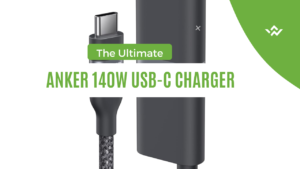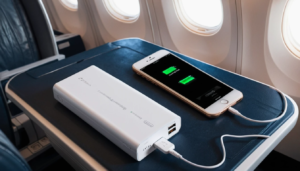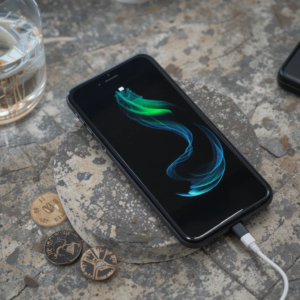Struggling with fast charging issues? Discover simple fixes, expert tips, and the latest advancements from 2024 to keep your devices powered up!
In today’s fast-paced world, every second counts, and keeping your phone, tablet, or laptop charged is more important than ever. Thanks to fast charging, we can power up our devices in minutes instead of hours. But what happens when fast charging doesn’t work as expected? Don’t worry—this guide will explain how to troubleshoot fast charging problems step by step. It’s super simple, so anyone can follow along!
Understanding Fast Charging
What is Fast Charging?
Fast charging is a technology that speeds up the time it takes to recharge your device’s battery. For example, while a regular charger might take three hours to fully charge a phone, a fast charger can do it in just 30-60 minutes. for more detailed information on different types of charger, read our Ultimate blog on different types of charger.
How Does Fast Charging Work?
Fast charging increases the amount of power sent to your device by raising the voltage or current. Here’s how it works:
- Voltage: Regular chargers typically operate at 5 volts, but fast chargers can go up to 20 volts.
- Current: Fast chargers also increase the amperage (current) to transfer more power quickly.
Example: Samsung’s latest Galaxy S24 Ultra supports Super Fast Charging 2.0, which charges the battery from 0% to 50% in just 15 minutes.
Popular Fast Charging Standards in 2025
Let’s compare the latest fast charging technologies:
| Standard | Max Output | Supported Devices | Key Features |
|---|---|---|---|
| Qualcomm Quick Charge 5 | Up to 150W | Android phones, laptops | Adaptive, backward compatibility |
| USB Power Delivery 4.0 | Up to 240W | Universal: smartphones, tablets, laptops | Universal, dynamic power allocation |
| Apple MagSafe 2.0 | Up to 35W | iPhone 15 Pro, iPads | Improved heat control, magnetic design |
| OnePlus Warp Charge 100W | Up to 100W | OnePlus 12 series | Ultra-fast with minimal heat |
| Samsung Super Fast Charging 2.0 | Up to 45W | Samsung Galaxy S24 Ultra | Device-specific optimization |
if you are looking for best chargers for 2025, don’t forget to read out blog on best fast charging adapter of 2025.
Advantages of Fast Charging
- Saves Time: Charges your device faster so you can get back to using it.
- Convenience: Perfect for busy people who need a quick power boost.
- Battery Care: Many fast chargers include features to protect battery health.
Common Fast Charging Problems
Even though fast charging is great, it’s not perfect. Here are the most common problems and why they happen.
Slow Charging
Have you ever noticed your phone charging slower than expected? Here’s why:
- Incompatible Charger or Cable: A regular charger won’t work as fast as a certified fast charger.
- Background Apps: Apps running in the background can use power while charging.
- Aging Battery: Older batteries don’t accept power as efficiently.
| Device | Standard Charger Time | Fast Charger Time |
| iPhone 15 Pro | 2 hours | 30 minutes |
| Samsung S24 Ultra | 2.5 hours | 40 minutes |
| OnePlus 13 | 1.5 hours | 25 minutes |
Overheating
Overheating during charging is a common issue. Possible causes include:
- Poor Ventilation: Charging your phone on a bed or couch traps heat.
- Faulty Chargers: Cheap or damaged chargers can overheat your device.
Tip: Place your phone on a flat, hard surface like a table when charging.
Device Not Charging
Sometimes, your device won’t charge at all. Why?
- Dirty Ports: Dust or lint in the charging port can block the connection.
- Battery Issues: An old or damaged battery may no longer hold a charge.
Intermittent Charging
Is your phone’s charging starting and stopping randomly? Common reasons:
- Loose Connections: Ensure your cable is securely connected.
- Software Bugs: Temporary glitches can interfere with charging.
Real User Experiences
Learning from others’ experiences can be helpful. Here are some examples:
| User Source | Issue Reported | Solution | Outcome |
| Slow charging with OEM cable | Switched to a certified fast charger | Charging time reduced by 50% | |
| Device overheating | Moved phone to a cooler area | Heat issues resolved | |
| Charging pauses intermittently | Cleaned the charging port | Charging became stable |
Troubleshooting Fast Charging Problems
Follow these steps to fix fast charging problems:
Inspect Your Charging Cable
- Check for Damage: Look for frayed wires or bent connectors.
- Clean Connectors: Wipe dirt off the USB or Lightning connectors.
Check Your Charger
- Ensure Compatibility: Use a charger that supports your device’s fast charging standard.
- Inspect the Output: Check the wattage; it should match your device’s requirements.
Update Software and Settings
- Enable Fast Charging: Check your phone settings to make sure fast charging is turned on.
- Software Updates: Updates can fix bugs affecting charging performance.
- iPhone: Go to Settings > General > Software Update.
- Android: Go to Settings > System > Software Update.
Evaluate Your Power Source
- Use a Wall Outlet: Avoid USB ports on computers as they deliver lower power.
- Avoid Faulty Power Strips: Ensure the outlet or strip is in good condition.
Best Practices for Effective Fast Charging
Use the Right Accessories
Invest in high-quality chargers and cables designed for your device. Cheap, uncertified chargers can cause issues.
Optimize Charging Conditions
- Ventilation: Charge in a cool, ventilated area.
- Airplane Mode: Turning on airplane mode can make charging faster by reducing battery usage.
Close Background Apps
Close apps running in the background to prevent them from draining your battery while charging.
Advanced Troubleshooting Techniques
Use Safe Mode
Boot your device in safe mode to see if third-party apps are causing charging problems:
- Android: Press and hold the power button, then tap “Safe Mode”.
- iPhone: Restart the device while holding the Volume Down button.
Check Battery Health
- iPhone: Go to Settings > Battery > Battery Health.
- Android: Use the built-in diagnostics tool (varies by brand).
Factory Reset
If nothing works, a factory reset might fix software-related issues. Remember to back up your data first!
When to Seek Professional Help
If troubleshooting doesn’t solve the problem, it might be time to visit a technician.
Signs You Need Help
- Your device still won’t charge or charges too slowly.
- The battery is swollen or physically damaged.
Warranty and Repairs
Check if your device is still under warranty. Most manufacturers offer free repairs for devices with valid warranties.
Conclusion
Fast charging keeps our devices ready for life’s busy moments, but it’s not always perfect. By following the tips in this guide, you’ll be able to fix most issues yourself and enjoy the benefits of fast charging without interruptions.
Remember, the right charger, proper care, and keeping your software updated are the keys to fast charging success. Happy charging!




